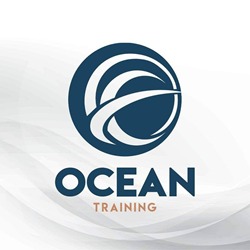
The most important specializations of the future
What are the specializations of the future?
It is difficult to predict which specialties will be in high demand in the future, as the job market and industry needs are constantly evolving.
However, here are some areas that are expected to see strong growth and demand in the coming years:
Healthcare: With an aging population and advances in technology, healthcare is expected to continue to grow as a field with demand for healthcare professionals such as nurses, doctors, and therapists.
Data Science and Analytics: As companies collect more and more data, there is a growing need for experts who can analyze and interpret that data to drive business decisions.
Computer Science and Software Engineering: As technology continues to advance, the need for experts in computer science and software engineering is likely to remain high.
Renewable energy: With growing concerns about climate change, there is a growing need for experts in renewable energy sources such as solar, wind, and hydropower.
Environmental Science: As awareness grows about the impact of human activity on the environment, there is a growing need for experts who can help protect and restore natural ecosystems.
Cyber security: As the number of cyber threats increases, there is a growing need for experts who can protect computer systems and data from hacking and other attacks.
Artificial Intelligence and Robotics: As automation continues to advance, there is a growing need for experts who can develop and maintain artificial intelligence and robotics systems.
Skills required for future specializations
Specializing in alternative and renewable energy requires a mix of technical and soft skills. Here are some of the basic skills required for this field:
Technical Skills: A strong foundation in science, engineering, and technology is essential for a career in the renewable energy industry. Some specific technical skills include:
- Knowledge of energy systems, such as solar, wind, geothermal, hydroelectric, and biomass.
- Familiarity with energy storage systems, such as batteries and fuel cells.
- Experience with computer-aided design (CAD) software and simulation tools.
- Understand electrical circuits, power electronics and control systems.
- Knowledge of renewable energy policies, regulations and standards.
Analytical skills: Renewable energy professionals must be able to analyze data, identify trends, and make informed decisions. Some specific analytical skills include:
- Ability to conduct cost-benefit analysis and life cycle evaluation of renewable energy projects.
- Understanding energy markets, pricing and risk management.
- Ability to conduct technical feasibility studies and project evaluations.
Communication Skills: Renewable energy professionals must be able to communicate complex technical information to a range of audiences, including policymakers, investors, and the general public. Some specific communication skills include:
- Ability to write reports, presentations and technical documents.
- Strong presentation skills to speak at conferences, meetings and public events.
- Ability to work collaboratively with multidisciplinary teams.
Problem-solving skills: Renewable energy professionals must be able to identify and solve complex problems that arise during the planning, design, construction, and operation of renewable energy projects. Some specific problem-solving skills include:
- Ability to identify technical and financial risks and develop mitigation strategies.
- Familiarity with troubleshooting and maintenance of renewable energy systems.
- Ability to identify opportunities for innovation and continuous improvement.
Passion for Sustainability: Finally, renewable energy professionals must have a strong commitment to sustainability and the environment. They must be motivated by the opportunity to create a cleaner, more sustainable future and be prepared to work tirelessly to achieve this goal.
Computer science is a broad field with many subfields, and the skills required can vary depending on your area of specialization. However, here are some basic skills necessary for most computer science majors:
- Strong programming skills: Mastery of programming languages is an essential skill for any computer science major. Some commonly used programming languages include Java, Python, C++, and JavaScript.
- Algorithm and Data Structure Design: Understanding algorithms and data structures is essential for writing effective code. You must be familiar with many algorithms and data structures and be able to choose the appropriate algorithms for a particular problem.
- Computer Architecture: Knowledge of computer architecture is important for understanding how hardware and software work together. You should be able to understand how a computer’s CPU, memory, and storage work and how they interact with each other.
- Operating Systems: Understanding the basics of operating systems is essential for computer science majors. You should be familiar with concepts such as process management, memory management, and file systems.
- Database Administration: Familiarity with database management systems is crucial for storing, retrieving, and manipulating data. You must be able to design and implement databases and be proficient in SQL.
- Software Engineering: Understanding software development, testing, and maintenance methodologies is essential to creating robust and reliable software. Must be familiar with software development life cycles, agile methodologies and testing frameworks.
- Communication Skills: The ability to communicate clearly and effectively is essential for computer science majors. Must be able to explain technical concepts to both technical and non-technical stakeholders and work effectively in a team.
- Continuous learning: Computer science is a constantly evolving field, and keeping up with the latest trends and technologies is essential for success. You must be passionate about learning new skills and be willing to constantly update your knowledge and skills.
A healthcare career requires a unique combination of technical and soft skills. Here are some of the essential skills required for healthcare professionals:
Technical skills: Healthcare professionals need a strong foundation in science and medicine. Some specific technical skills include:
- Knowledge of anatomy, physiology and medical terminology.
- Familiarity with diagnostic and therapeutic equipment such as EKG machines, X-rays, and ultrasound machines.
- Understanding pharmacology and medication administration.
- Proficiency in electronic medical records (EMR) systems.
Critical thinking and problem-solving skills: Healthcare professionals must be able to make quick and accurate decisions in high-pressure situations. Some specific critical thinking and problem-solving skills include:
- Ability to evaluate patient symptoms and make a diagnosis.
- Familiarity with evidence-based medicine and ability to evaluate medical research studies.
- Ability to identify potential medical errors and take corrective action.
- Attention to detail: Healthcare professionals must pay close attention to details to ensure accurate diagnosis and safe treatment. Some special attention to detail skills include:
- Ability to record and interpret accurate patient data, such as vital signs, medication doses, and laboratory results.
- Knowledge of infection control procedures to prevent the spread of disease.
Ethics and Professionalism: Healthcare professionals must maintain high ethical standards and act professionally at all times. Some specific ethical and professional skills include:
- Familiarity with patient privacy laws and regulations, such as HIPAA.
- Ability to maintain confidentiality of patient information.
- Understanding of cultural diversity and sensitivity to patients’ backgrounds and beliefs.
- Ability to work collaboratively with other healthcare professionals in a team-oriented environment.
Physical and emotional resilience: Healthcare professionals may work long hours, deal with life-threatening situations, and experience emotional stress. Some specific physical and emotional resilience skills include:
- Ability to manage stress and maintain a positive outlook.
- Good physical health and stamina to cope with the physical demands of the job.
- Ability to handle the emotional demands of working with patients and their families during difficult times.
At our Ocean Training Academy, we help you prepare to enter the labor market
()

